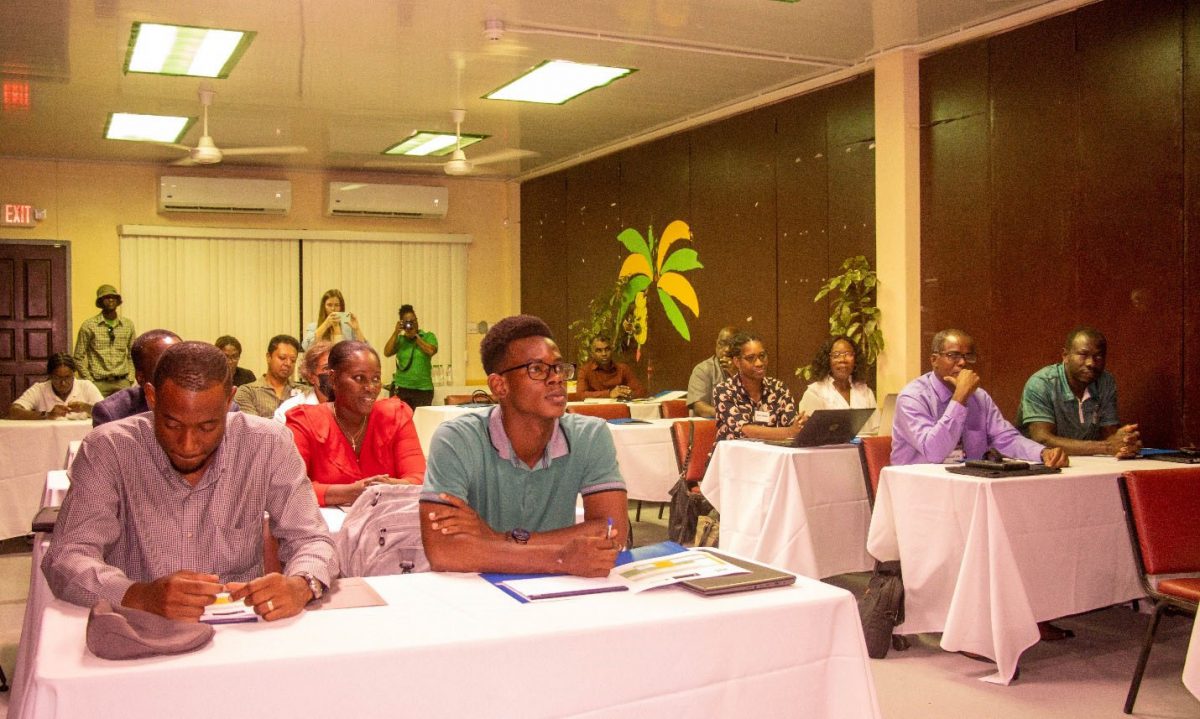The University of Guyana (UG) in collaboration with Catalyste+, a Canadian development partner, recently hosted a weeklong modelling workshop aimed at bolstering the capacity of students, researchers, and government technical staff working on climate change, land, energy, and water resources management.
A release yesterday from UG said that the workshop was facilitated by Canadian expert Dr. Taco Niet, Assistant Professor of Professional Practice, School of Sustainable Energy Engineering, Simon Fraser University in British Columbia. The workshop was held at the University’s Turkeyen Campus and ran from January 15 to 19 and saw over 15 participants benefiting.
The initiative was backed by the Canada-Caribbean Expert Deployment Mechanism, a Canada-funded project. This Caribbean-specific mechanism, managed by Catalyste+ (formerly CESO), is a partnership between Canada and national government entities to provide Canadian expertise to help build capacity in priority areas.
The workshop aimed at providing participants with the skills to assess the interlinkages between resource systems in order to understand how production and use of food, energy and water resources contribute to climate change and how climate change affects these resource systems. It was also intended to equip participants with the knowledge that will allow them to more efficiently manage Guyana’s resources and mitigate climate change while growing the economy and working to achieve the sustainable development goals.
Dr Dawn Fox, Head of UG’s Department of Chemistry and local coordinator for the climate, land, energy and water training (CLEWs), in her remarks at the closure of the workshop last Friday said that the training has yielded immediate benefits in the formation of a UG modelling group and their ability to share their newly acquired skills with students. She added that the workshop has also set in motion the initiative to support building a CLEWs model for Guyana which will in turn support a national, cross-sectoral approach in addressing issues in relation to climate change and management of energy and other natural resources.










